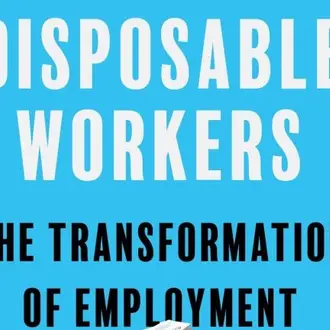Employers’ choices about workplace policies have a tremendous impact on their employees’ prospects for economic mobility. “From whom they hire and promote, to how much they pay, what schedules they offer, and how they organize work, employers shape the lives and mobility prospects of millions,” observe MIT Sloan Professors Erin L. Kelly, Hazhir Rahmandad, and Nathan Wilmers and MIT Sloan doctoral student Aishwarya Yadama in a new article published online by the journal ILR Review. What’s more, the authors note, employer practices, including on pay, vary considerably—even among companies in similar industries.
With that in mind, Kelly, Rahmandad, Wilmers, and Yadama reviewed and analyzed the findings of more than 360 academic articles to identify employer practices that have a positive effect on the economic mobility of disadvantaged workers, including those without a college degree and workers of color. In their analysis, the researchers focused on whether employer practices helped workers increase their earnings over time, helped broaden disadvantaged workers’ likelihood of getting hired into good jobs , and/or involved worker-friendly policies, such as stable schedules, that make it more likely people can stay in jobs over time.
Kelly is the Sloan Distinguished Professor of Work and Organization Studies at MIT Sloan and Co-Director of the MIT Institute for Work and Employment Research (IWER). Rahmandad is the Schussel Family Professor of Management Science and an Associate Professor of System Dynamics at MIT Sloan, as well as an IWER faculty affiliate. Wilmers is the Sarofim Family Career Development Associate Professor and an associate professor of Work and Organization Studies at MIT Sloan, where he is a member of the core faculty of IWER and is also affiliated with the Economic Sociology group. Yadama is a doctoral student at MIT Sloan.
In their article “How Do Employer Practices Affect Economic Mobility?”, Kelly, Rahmandad, Wilmers, and Yadama review research on numerous practices—some of which have mixed or unclear effects on various aspects of workers’ economic mobility. But some practices, the authors conclude, have been clearly shown to be beneficial to at least some disadvantaged workers. The authors’ findings include that:
- Sectoral training programs can help low-wage workers achieve economic mobility. Research has shown that nonprofit job-training programs that work closely with employers to train low-wage workers for good jobs in a particular industry can be very effective at improving economic outcomes for participating workers.
- Raising wages without excluding disadvantaged workers is beneficial. Important pay differences exist between employers: even employers operating in the same industries and labor markets may adopt higher or lower wage rates for similar jobs. Increasing pay provides direct benefits for low-wage workers, but can most effectively be combined with changes in hiring and culture that preserve access to jobs for disadvantaged workers.
- Providing stable schedules is important to workers’ economic mobility and well-being. Many employers, particularly in the service sector, have in recent years adopted “just-in-time” scheduling practices that can saddle workers with unpredictable schedules and varying hours. Research has shown this practice has significant negative economic effects for low-wage employees, both because it constrains their ability to take on second jobs to earn more income and because it increases the volatility of their pay.
- Adopting certain diversity, equity, and inclusion practices has positive affects on workers who are underrepresented minorities. While research has found that mandatory diversity training tends not to be very effective, task forces and committees aimed at achieving an organization’s workplace diversity goals have been found to be both effective and comparatively inexpensive. Another practice that helps workers of color overcome bias in hiring is establishing diversity goals. There is also research among professional workers that suggests that employee resource groups (ERGs) and mentorship programs can be beneficial workers of color.
- High-involvement work practices that empower workers can have benefits for both employers and workers. Researchers have long known that certain bundles of “high-involvement” management practices—including training, selective hiring, task variety, and management practices that solicit employee involvement in improving the workplace—-can have productivity benefits for organizations. But research also indicates that this type of work design can enhance workers’ sense of well-being on the job and increase their likelihood of staying at a job.
In some cases, the researchers faced challenges in analyzing the effect of management practices on the economic mobility of disadvantaged workers over time, as many existing studies weren’t designed to measure that. In general, Kelly, Rahmandad, Wilmers, and Yadama call for more research designed to effectively study worker economic mobility over time, both through experimental and mixed-methods studies with organizations and through survey or administrative data that links employer practices and employee outcomes and allows researchers to follow workers’ economic outcomes over time. “This research agenda can bring a focus on long-term outcomes and inequality to the study of corporate practices,” the authors conclude.



